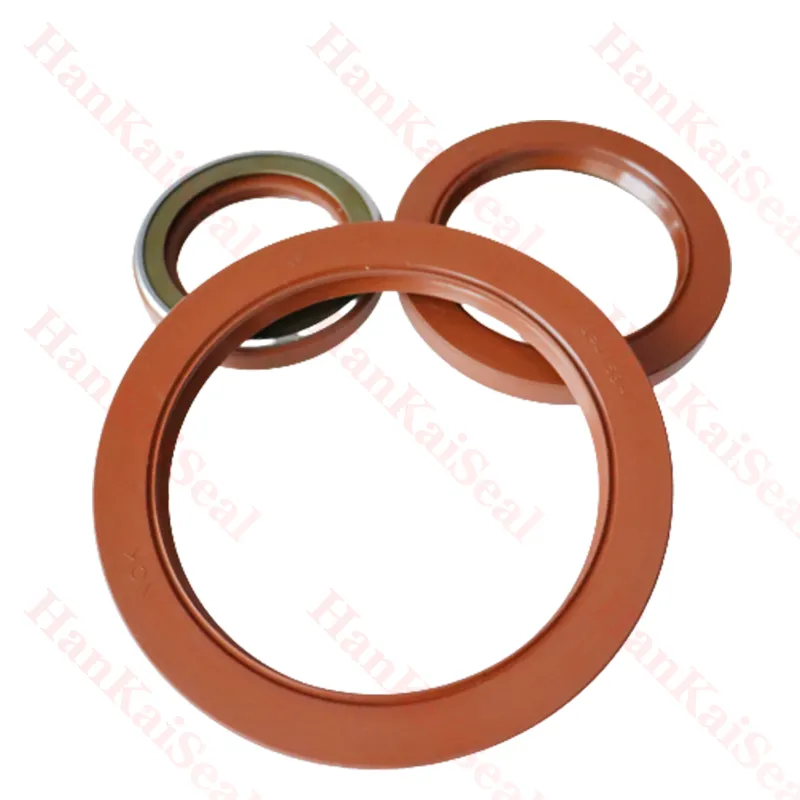Sep . 06, 2024 14:06 Back to list
High-Quality Metal Cased Oil Seals for Reliable Sealing Solutions
Understanding Metal Cased Oil Seals A Comprehensive Overview
Metal cased oil seals play an essential role in various industrial applications, ensuring the longevity and efficiency of machinery. These seals are designed to prevent the leakage of fluids and contaminants, thereby protecting internal components from damage and maintaining optimal performance.
What are Metal Cased Oil Seals?
Metal cased oil seals, often referred to as simply oil seals, consist of a flexible rubber sealing element housed within a rigid metal casing. The metal casing provides structural integrity and strength, which makes these seals particularly well-suited for high-pressure and high-temperature environments. The flexibility of the rubber allows the seal to adjust to minor misalignments and vibrations, providing an effective barrier against external contaminants and moisture.
Applications of Metal Cased Oil Seals
These seals are widely utilized across numerous industries, including automotive, aerospace, and manufacturing. In the automotive sector, metal cased oil seals are commonly found in engines, gearboxes, and differentials. They help maintain fluid levels and prevent oil leaks, which can lead to significant damage if not addressed promptly.
In the aerospace industry, the need for reliability and durability is paramount. Metal cased oil seals provide airlines with a robust solution to prevent oil leakage in machinery that operates under extreme conditions. Their ability to withstand high pressures and temperatures makes them invaluable in this sector.
metal cased oil seals

Moreover, in manufacturing settings, these seals protect bearings, pumps, and motors from dirt and moisture, significantly extending the lifecycle of these components.
Advantages of Metal Cased Oil Seals
One of the key advantages of metal cased oil seals is their ability to withstand harsh operating conditions. The metal casing protects the rubber sealing lip, ensuring that it remains intact even when exposed to aggressive fluids and fluctuating temperatures. This robustness translates to lower maintenance costs and reduced downtime, essential factors for operational efficiency.
Another benefit is the range of design options available. Metal cased oil seals can be customized in terms of size, shape, material composition, and sealing lip design. This adaptability allows manufacturers to select the optimal seal for specific applications, enhancing performance and reliability.
Conclusion
In conclusion, metal cased oil seals are critical components in various industrial applications, providing robust protection against fluid leakage and contamination. Their combination of a flexible rubber sealing element and a durable metal casing allows them to excel in demanding environments. As industries continue to evolve and pursue greater efficiency, the importance of reliable sealing solutions like metal cased oil seals will undoubtedly grow. Understanding their design, applications, and advantages is fundamental for professionals looking to maintain their equipment's integrity and performance. By investing in high-quality metal cased oil seals, industries can ensure the longevity of their machinery while minimizing the risk of costly repairs and downtime.
-
TCN Oil Seal Metal Ring Reinforcement for Heavy Machinery
NewsJul.25,2025
-
Rotary Lip Seal Spring-Loaded Design for High-Speed Applications
NewsJul.25,2025
-
Hydraulic Cylinder Seals Polyurethane Material for High-Impact Jobs
NewsJul.25,2025
-
High Pressure Oil Seal Polyurethane Coating Wear Resistance
NewsJul.25,2025
-
Dust Proof Seal Double Lip Design for Construction Equipment
NewsJul.25,2025
-
Hub Seal Polyurethane Wear Resistance in Agricultural Vehicles
NewsJul.25,2025
-
The Trans-formative Journey of Wheel Hub Oil Seals
NewsJun.06,2025
Products categories
















